Nora Sanders grew up in the United Church and trained as a lawyer before working with governments in northern and western Canada. In 2007, she became the general secretary of the church’s General Council, where she oversaw major changes including the restructuring from four courts to three that took effect last year. She spoke with Mike Milne ahead of her retirement this fall. The church announced last week that Rev. Michael Blair will take over the general secretary job on Nov. 1.
Mike Milne: How does someone with your professional background end up leading the administration of the nation’s largest Protestant denomination?
Nora Sanders: God calls us in certain ways, whether we understand that at the time or not. I think everything in our lives is connected. When I was working in the Northwest Territories, I attended church there. We had a wonderful minister who later became moderator, Very Rev. Peter Short. When he was moderator, they were looking for a general secretary, and I guess I came to mind. It was a very hard decision for me to leave a government job I was very happy with in Saskatchewan, but it was also a chance for me to use the skills I had learned in public service and serve the church I love, so here I am. Did I know what I was getting into? No. But you never do.
MM: How has your personal faith affected your approach?
NS: I think my faith has informed my work everywhere I’ve worked. To me, that’s what it is to be a person of faith. You know it’s not all about you; there is a greater presence. There is something bigger than us we choose to call God because we don’t have words to describe that mystery. Our faith calls us to make a difference in the world. Our faith calls us to share the faith with the next generation, and to give people opportunities to grow in their own faith, to make a difference in their own lives and their families and communities and beyond.
My faith has grown and evolved throughout my life. But as you mature and encounter different experiences, you understand your faith in different ways. And to me, the accompaniment of Jesus Christ, the accompaniment of God through those different experiences of life, is what sustains me.
More on Broadview:
- United Church names new general secretary
- More layoffs at United Church General Council office
- General Council 44 postponed to 2022
MM: You joined General Council shortly after the Indian Residential Schools Settlement Agreement was signed. Since then, the church has taken part in the Truth and Reconciliation Commission. How have those events shaped the church? How have they affected your work?
NS: In a huge way. In our own lives, I think encountering tough things often provides an opportunity for growth. I think that’s been the same for the church. In understanding the story of the residential schools, we’ve had to acknowledge an aspect of our church history we are are not proud of. And even as we know we can’t go back and change what happened, it gives us the challenge as to how to change what lies ahead. Like so many things in church, it is about relationship. We are still on that path of determining and coming to understand what it means to be truly in relationship with others, in this case with the Indigenous members of our church and the Indigenous members of society.
MM: What stands out in your mind as the high point of your time with General Council?
NS: I have trouble trying to name a high point. It’s a whole series of times. But I would lift up the relationships with people I have encountered across the church and with our church partners. My predecessor, Rev. Jim Sinclair, has been a wonderful support to me through the years — never leaning over my shoulder in any way, but just being supportive. The different moderators I have worked with have been inspiring to me, as has the chance to work with different executives, leadership and people in congregations.
That’s been the story of my life in churches: the wonderful people, the encouragement, the faithful examples. It’s often a small moment. You’re at a regional meeting in a small group discussion, and something sticks with you. Those things are as important to me as any rulings General Council has made.
MM: What do you wish you’d known when you started that you know now?
NS: When I began in this role, it was a bit of a surprise to me that in the church, just like in other organizations, people weren’t always kind and loving toward each other. For the first little while, that was challenging, because for most of my life the church had a life-giving role, but now I was in a position where I had to deal with challenging issues.
Certainly I didn’t understand the way church memberships and revenues were declining. In another way, I am grateful to be part of an evolving time. The way church does things needs to keep changing, but I don’t see where it’s going yet.

MM: After an administrative ruling you made, a Toronto Conference committee called for the removal of Rev. Gretta Vosper, a self-professed atheist, from ministry. But that didn’t happen, and she continues to lead her congregation at West Hill United. Are you frustrated by that?
NS: There are a lot of things about our church polity that are frustrating, but I still like the sort of democratic approach we have, giving responsibility to different councils or courts of the church. Do we have a whole bunch of different perspectives in the church? Yes. And it both frustrates me and is something I treasure. I find that encountering people who see things differently than I do often enriches my own understanding.
MM: What is your fondest hope for the United Church?
NS: That we will be open to the transformation future generations bring, while still keeping our faith in God and our relationship with the divine, however we want to describe that, at our centre. So that the next generation can have the benefit of a life of faith and all it brings: the comfort, a place to turn in difficult times. Right now we are at a time of huge anxiety in our society, and it helps to have faith.
MM: Rev. David Ewart, who’s also an amateur statistician, predicted that by 2025, the United Church will have only 25,000 in the pews on Sunday. This year, the General Council office reduced grants and laid off 12 staff members as part of $4 million in budget cuts. What does this mean for the church, and can anything be done to change these trends?
NS: When you connect those two ideas in one question, it suggests that the only measure of our effectiveness as a church is how many attend Sunday morning worship. I think we need to question how we are defining church. Over the generations since Jesus walked the Earth, there have been many ways of following him. I love Sunday morning worship, but I also believe that in this generation and the generations to come, people will look for a greater variety of ways of exploring their faith. That’s exciting. Everything else in our world and our lives changes and has changed and will change. So church will, too.
Having said that, our financial picture is still largely dependent on the givings received by the decreasing number of people in the pews. That has meant changes in the size and capacity of the General Council office, with many difficult decisions made to terminate employment and to end or reduce pieces of work. And what we have experienced centrally has also been experienced regionally and in local congregations.
In partnership with the United Church Foundation, we are examining possibilities to broaden our capacity to seek donations from people who are not necessarily in the pews on Sunday mornings, but who share our faith or a passion for the work our faith calls us to do. As we broaden how we think about church, we need to be intentional at creating the links between whatever form that takes and our shared work as a denomination through Mission & Service.
I am not sure there are any easy answers, but clearly this is a time for openness to new approaches.
I hope the next generation can have a life of faith and all it brings: the comfort, a place to turn in difficult times. We are at a time of huge anxiety, and it helps to have faith.
MM: The COVID-19 pandemic also forced big changes in the way church people meet and worship. What will the longer-term impacts be?
NS: We made some changes at General Council office last year, when we moved from two-and-a-half floors of our office building to one, to leap further ahead with digitizing everything. We’re all used to doing electronic meetings, and we’re used to accessing our files electronically. Like everybody now, we’re looking at what the future of workspace looks like.
One of my colleagues was part of a call with Anglicans in Great Britain who feel that between 25 and 30 percent of their congregations will not survive. We have not done that kind of analysis. I’ve heard from ministers that there are people turning up for online worship who haven’t been attending church. Whether it’s that there was something imposing about entering a building, or this is a time of particular spiritual need, we don’t know yet. What’s really important in these times that are particularly uncertain is to look for the opportunities as well as the laments.
MM: Do you have any special plans for retirement?
NS: I will move back to Port Stanley, Ont. I hope to have more time for friends and family, and some more time for my other pursuits — pottery, sewing, running, reading, writing, those kinds of things. Cooking, eating, kayaking. There’s a long list of things I like to do. Of course, I will still be involved in church life, but locally. I know I will get involved again with some volunteer work, but I will take time with that.
MM: Do you have any advice for your successor?
NS: Keep the faith. Listen. Reach out for support when you need it. And help the church to not be afraid of change.
This interview has been edited and condensed for length and clarity. It first appeared in Broadview’s October 2020 issue with the title “Change in the church.”
I hope you found this Broadview article engaging. The magazine and its forerunners have been publishing continuously since 1829. We face a crisis today like no other in our 191-year history and we need your help. Would you consider a one-time gift to see us through this emergency?
We’re working hard to keep producing the print and digital versions of Broadview. We’ve adjusted our editorial plans to focus on coverage of the social, ethical and spiritual elements of the pandemic. But we can only deliver Broadview’s award-winning journalism if we can pay our bills. A single tax-receiptable gift right now is literally a lifeline.
Things will get better — we’ve overcome adversity before. But until then, we really need your help. No matter how large or small, I’m extremely grateful for your support.
Jocelyn Bell
Editor/Publisher

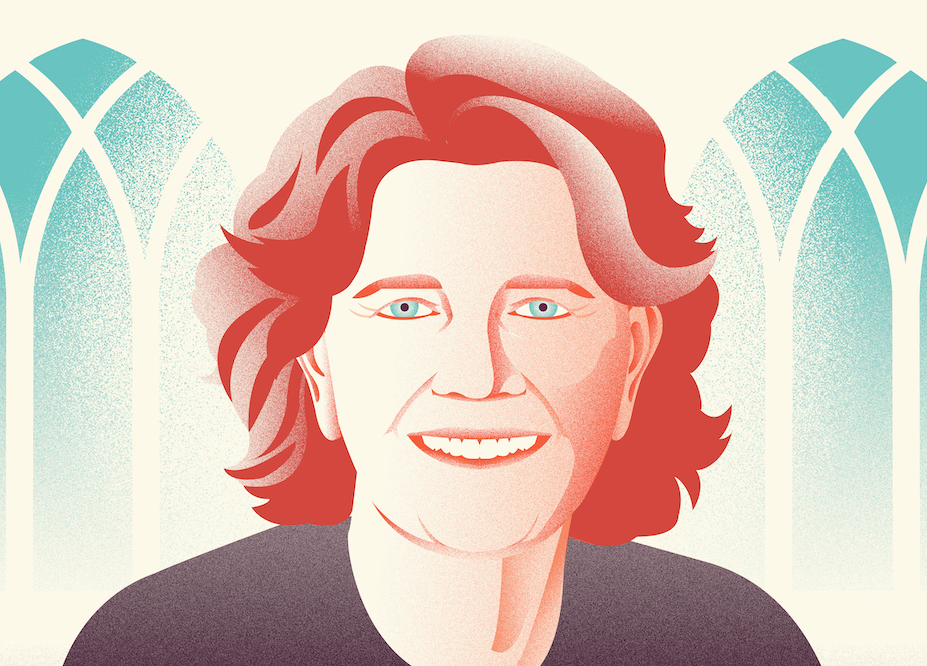









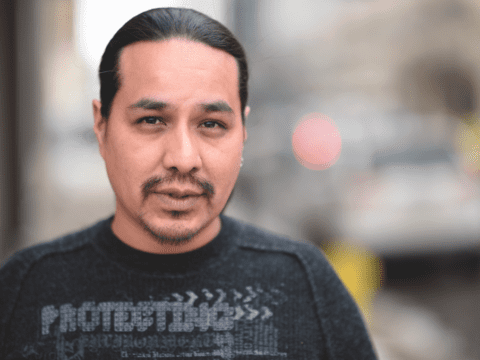
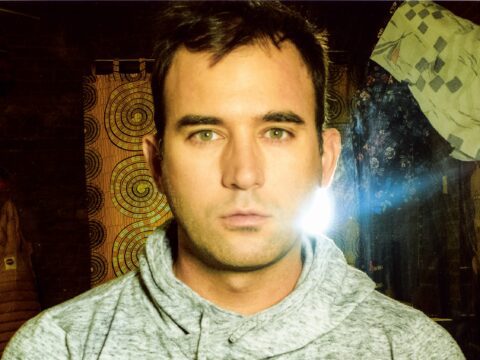
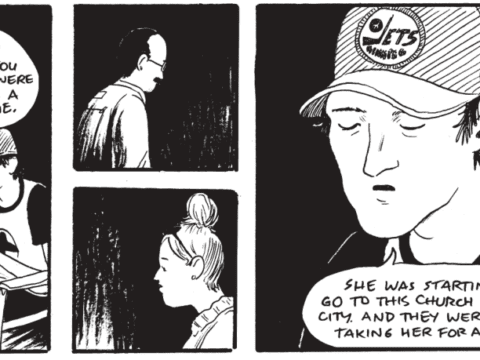
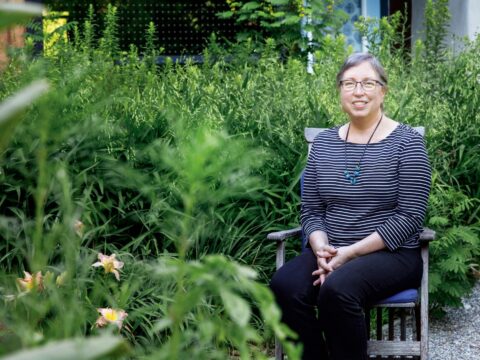

Mike Milne referenced the work I did some years ago showing what would happen to our church if past trends continued unchanged – average worship attendance for all of Canada – 25,000! At the time, that was how many went to church in the Maritimes.
If you’d like to see the data, I’ve posted a link to one of my articles below.
Here’s the link: https://www.davidewart.ca/2015/02/welcome-to-the-last-days-of-the-united-church-of-canada.html